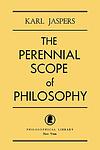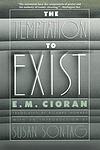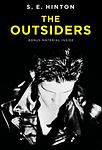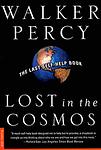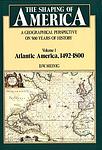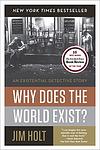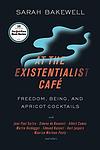The Greatest "Nonfiction, Existentialist" Books Since 1900
Click to learn how this list is calculated.
This list represents a comprehensive and trusted collection of the greatest books. Developed through a specialized algorithm, it brings together 300 'best of' book lists to form a definitive guide to the world's most acclaimed books. For those interested in how these books are chosen, additional details can be found on the rankings page.
Genres
Existentialist literature is a genre that explores the meaning and purpose of human existence, often through the lens of individual experience and subjective perception. These books often delve into themes of freedom, choice, and responsibility, and may challenge traditional notions of morality and societal norms. Existentialist literature can be introspective and philosophical, and may offer readers a unique perspective on the human condition and the search for meaning in a complex and often chaotic world.
Countries
Date Range
Reading Statistics
Click the button below to see how many of these books you've read!
Download
If you're interested in downloading this list as a CSV file for use in a spreadsheet application, you can easily do so by clicking the button below. Please note that to ensure a manageable file size and faster download, the CSV will include details for only the first 500 books.
Download-
1. The Myth of Sisyphus by Albert Camus
This book is a philosophical essay that explores the concept of absurdity, and how individuals should respond to life's inherent meaninglessness. It posits that life is essentially absurd due to the conflict between our desire for understanding and the chaotic, indifferent universe. The author argues that the only proper response to this absurdity is to live life to its fullest, embracing and rebelling against the absurdity, rather than resorting to suicide or turning to religion or philosophy for false comfort. The story of Sisyphus, condemned to eternally roll a boulder up a hill only for it to roll back down, is used as a metaphor for the human condition.
-
2. Being and Time by Martin Heidegger
Being and Time is a seminal work that explores the concept of "being" through a detailed analysis of human existence. The book delves into existential and phenomenological thought, examining how humans relate to the world and their own existence. The author argues that people are always "being-in-the-world" and that understanding this fundamental state is crucial to comprehending the broader concept of being. The work also introduces the concept of "Dasein," a term used to describe the specific type of being that humans possess.
-
3. The Rebel by Albert Camus
"The Rebel" is a philosophical exploration of rebellion and revolution. It dissects the nature and origins of rebellion, arguing that it arises from a basic human refusal to accept injustice. The book delves into the many forms rebellion can take, from personal revolt to political revolution, and examines the consequences and ethics of each. The author also critically evaluates the rebellious attitudes of various historical figures and movements, highlighting the potential for rebellion to either affirm or destroy human dignity.
-
4. On the Heights of Despair by Emil Cioran
"On the Heights of Despair" is a philosophical exploration of the human condition, particularly focusing on themes such as existentialism, despair, and nihilism. The author delves into the idea of life as suffering and the inevitability of death, offering a bleak yet thought-provoking perspective on existence. The work is a profound contemplation of life's absurdity, loneliness, and the struggle to find meaning, presenting an introspective journey into the depths of despair and the heights of existential thought.
-
5. I and Thou by Martin Buber
This philosophical work explores the concept of relationships and the nature of dialogue. The author suggests that human life finds its meaningfulness in relationships, which he divides into two categories: "I-It" and "I-Thou". The "I-It" relationship is characterized by a detached and objective perspective, while the "I-Thou" relationship involves a deep sense of connection and mutual existence. The book argues that modern society, with its emphasis on individualism and materialism, often neglects the "I-Thou" relationship, leading to a loss of genuine human connection.
-
6. Wittgenstein's Nephew by Thomas Bernhard
"Wittgenstein's Nephew" is a semi-autobiographical novel that explores the friendship between the narrator and his friend Paul, who is the nephew of the famous philosopher Ludwig Wittgenstein. The story takes place in Vienna and is set against the backdrop of the Austrian mental health system. The novel delves into themes of sanity, insanity, and the fine line that separates the two, while also offering a critique of Austrian society. It is a meditation on the nature of illness, both physical and mental, and the impact it has on personal relationships and one's perception of the world.
-
7. Existentialism And Humanism by Jean Paul Sartre
The book is a philosophical work that presents the core tenets of existentialist thought, emphasizing the individual's unique position as a self-determining agent responsible for the authenticity of their choices and actions. It argues that human existence precedes essence, meaning that people first exist without predetermined purpose and must then define themselves through their decisions and commitments. The text also addresses the implications of this freedom, including the weight of responsibility it places on individuals and the consequent anxiety, as well as the absence of a universal moral code. It concludes with a discussion on the role of human solidarity and the ethical considerations that arise from our interconnectedness with others.
-
8. The Perennial Scope Of Philosophy by Karl Jaspers
The book in question explores the enduring nature of philosophical inquiry, examining how it transcends temporal and cultural boundaries to address fundamental questions of existence, knowledge, and ethics. The author argues that philosophy is not confined to any particular era or dogma but is a continuous pursuit of truth that evolves with human thought while remaining rooted in the quest for universal understanding. Through a critical examination of historical philosophical movements and their contributions to the ongoing dialogue, the work emphasizes the importance of philosophy in providing a framework for individuals to confront the mysteries of life and the universe, encouraging readers to engage in their own philosophical contemplation.
-
9. The Temptation To Exist by Emil Cioran
"The Temptation to Exist" is a philosophical work that explores the human condition and the inherent struggles of existence. The author delves into themes of nihilism, despair, and the search for meaning in a world filled with suffering. Through a series of thought-provoking essays, Cioran challenges traditional beliefs, questions the nature of reality, and reflects on the complexities of human existence, ultimately offering a bleak yet profound perspective on the human experience.
-
10. The Courage to Be by Paul Tillich
"The Courage to Be" is a philosophical work that explores the concept of courage in the face of existential threats and anxieties. The author argues that courage is not simply a bold act in the face of physical danger, but also the strength to affirm one's own being in spite of non-being, despair, and death. The book also discusses the role of God as the ultimate source of courage and suggests that embracing our existential anxieties can lead to self-affirmation and spiritual growth.
-
11. Nuptials by Albert Camus
"Nuptials" is a lyrical essay collection that delves into the author's profound reflections on the Mediterranean landscape and the joy of living. Through vivid and evocative prose, the essays explore the author's sensory experiences and emotional responses to the sun, sea, and nature of Algiers and its surroundings. The work celebrates the physical beauty of the world, the intense pleasures of the body, and the connection between the individual and the natural environment, all while contemplating the themes of existence, happiness, and mortality. The author's meditations on the simple yet profound aspects of life offer a philosophical perspective on the human condition and the search for meaning within the splendor of the natural world.
-
12. What Is Called Thinking? by Martin Heidegger
The book explores the nature of thought and understanding, delving into the essence of what it means to think. The author challenges the traditional views of thinking as mere cognition or problem-solving, proposing instead that true thinking is a profound engagement with being itself. Through a detailed examination of the works of philosophers, poets, and other thinkers, the text invites readers to reconsider the relationship between thought, language, and the essence of humanity, emphasizing the need for authenticity in the process of thinking and the transformative potential it holds for understanding our existence.
-
13. Minima Moralia by Theodor Adorno
"Minima Moralia" is a collection of aphoristic essays that delve into the intricacies of modern life under capitalism and the pervasive influence of the culture industry. Written during the author's exile in the mid-20th century, the work reflects on the erosion of individuality and the subtle tyrannies of conformity and ideological manipulation. The essays blend philosophy, sociology, and cultural critique, offering profound insights into the human condition and the social dynamics of contemporary society. Through its critical examination of everyday phenomena, the book challenges readers to reconsider their perceptions of normality and ethics in a rapidly changing world.
-
14. Sense And Non Sense by Maurice Merleau-Ponty
"Sense and Non-Sense" explores the complex relationship between perception, art, language, and philosophy. The book delves into how human experience and understanding are shaped by our sensory perceptions, which are intertwined with our cultural and linguistic contexts. Through a series of essays, the author critiques and builds upon the ideas of existentialism and phenomenology, arguing that meaning in life is created through our interactions with the world around us. The work challenges traditional notions of objective reality, emphasizing instead the subjective nature of human experience and the inherent ambiguity and uncertainty of existence.
-
15. The Divided Self by R.D. Laing
"The Divided Self" explores the nature of human identity and the fragile line between sanity and madness. The book delves into the inner lives of individuals diagnosed with schizophrenia, arguing that their experiences are profoundly misunderstood by conventional psychiatry. The author presents a compelling case that these individuals are not inherently disordered but are instead struggling to maintain a coherent self in a world that often rejects their unique perceptions and realities. Through vivid case studies and philosophical inquiry, the book challenges the reader to reconsider the nature of mental illness and the societal norms that define it.
-
16. The Outsider by Colin Wilson
"The Outsider" is a seminal work of existentialist thought that explores the psyche of individuals who stand on the fringes of society, those who feel a profound sense of alienation and disconnection from the world around them. The book delves into the lives and works of various historical figures, including artists, writers, and philosophers, to examine the role of the outsider in shaping human consciousness and culture. It discusses the outsider's struggle with self-identity and the search for meaning in an indifferent universe, ultimately seeking to understand the potential for transcendence and the ways in which these individuals can reconcile their existential angst with the demands of everyday life.
-
17. Life Against Death by Norman O. Brown
"Life Against Death" is a provocative psychoanalytical study that explores the role of sexuality in Western culture and examines how the repression of libidinal desires is linked to destructive behaviors. The author draws extensively on the theories of Sigmund Freud, particularly his concept of the death drive, to argue that the neuroses of society can be traced back to the stifling of basic human urges. The book challenges traditional views on civilization's progress by suggesting that true liberation can only be achieved through the integration of erotic energy into all aspects of life, advocating for a revolutionary approach to psychoanalysis that embraces the transformative power of Eros.
-
18. Lost in the Cosmos by Walker Percy
The book is a satirical self-help guide that explores the human condition and our place in the universe through a series of thought experiments, quizzes, and essays. It delves into topics such as existentialism, semiotics, philosophy, science, and religion, all with a humorous twist. The book challenges readers to examine their lives, their beliefs, and their perceptions of reality, ultimately suggesting that we are all a little lost in the cosmos.
-
19. Creative Evolution by Henri Bergson
"Creative Evolution" is a philosophical work that explores the concept of life and evolution from a metaphysical perspective. The author challenges the traditional mechanistic and teleological interpretations of evolution, proposing instead that life is characterized by a continuous creative process driven by an élan vital, or vital impetus. This force is responsible for the complexity and diversity of life forms and their adaptation through a spontaneous and unpredictable process. The book blends philosophy with scientific insights to argue that evolution is neither purely deterministic nor entirely random, but a creative and dynamic interplay of forces.
-
20. The Will To Power by Friedrich Nietzsche
The book in question is a posthumously published collection of notes and fragments that explores the author's ideas on the driving force of human ambition and achievement, which he terms as the "will to power." It delves into various subjects such as art, science, morality, and the nature of truth, offering a critique of traditional values and a reevaluation of existence. The work is a cornerstone of the author's philosophy, reflecting his critical stance on religion, metaphysics, and the prevailing moral systems of his time, while advocating for a reimagining of human potential and the creation of new values.
-
21. The Geographical History Of America by Gertrude Stein
"The Geographical History of America" is an experimental work that delves into the relationship between human consciousness and the external world, particularly focusing on the American landscape. The book challenges traditional narrative structures and explores the concept of identity through the lens of geography, history, and the author's unique philosophical musings. It is characterized by its repetitive and playful use of language, reflecting the author's avant-garde approach to literature and her desire to capture the essence of American culture and the human experience within it.
-
22. Why Does The World Exist? An Existential Detective Story by Jim Holt
In "Why Does The World Exist? An Existential Detective Story," Jim Holt explores the question of why there is something rather than nothing. He interviews philosophers, scientists, and theologians to try to find an answer, delving into topics such as the nature of existence, the origins of the universe, and the meaning of life. Along the way, he examines various theories and arguments, from the Big Bang to the concept of God, in an attempt to uncover the ultimate explanation for the existence of the world.
-
23. The Living Thoughts Of Kierkegaard by Soren Kierkegaard
"The Living Thoughts of Kierkegaard" presents a curated selection of the philosophical ideas of the renowned Danish philosopher, focusing on his concepts of individuality, existentialism, and the human condition. The book distills Kierkegaard's thoughts on how individuals must confront their own subjective realities and the existential choices that define their lives. Through a series of reflections and analyses, it explores themes of anxiety, faith, and morality, encouraging readers to reflect deeply on their personal existence and the philosophical underpinnings that influence their daily decisions and beliefs.
-
24. At The Existentialist Café: Freedom, Being, And Apricot Cocktails by Sarah Bakewell
"At The Existentialist Café" is a non-fiction book that explores the lives and ideas of a group of philosophers known as the existentialists. The book takes readers on a journey through the cafes of Paris in the 1930s and 40s, where philosophers such as Jean-Paul Sartre, Simone de Beauvoir, and Maurice Merleau-Ponty would gather to discuss their ideas about freedom, being, and the meaning of life. Bakewell weaves together their personal stories, philosophical theories, and the historical context in which they lived, to create a compelling and accessible introduction to existentialism.
-
25. The Denial of Death by Ernest Becker
"The Denial of Death" is a thought-provoking examination of the influence of death on human behavior and society. The author argues that the fear of death is a primary motivator in human life, influencing our actions, beliefs, and relationships. He explores how culture and religion are often mechanisms to deny and transcend the reality of death, offering symbolic immortality through beliefs in the afterlife or in the enduring impact of one's life work. The book also delves into the psychological impact of this denial and the concept of the "heroic individual" who seeks to leave a lasting legacy.
Reading Statistics
Click the button below to see how many of these books you've read!
Download
If you're interested in downloading this list as a CSV file for use in a spreadsheet application, you can easily do so by clicking the button below. Please note that to ensure a manageable file size and faster download, the CSV will include details for only the first 500 books.
Download






